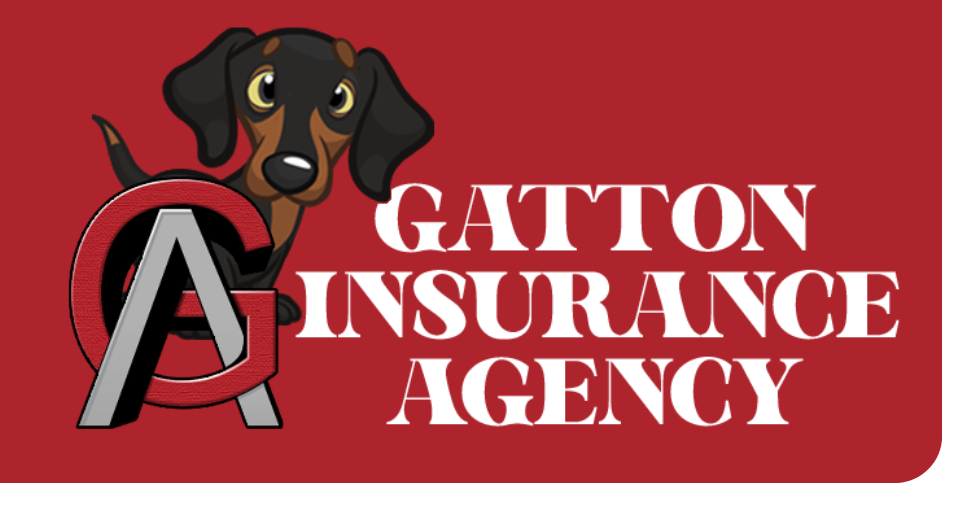Understanding High Deductible Insurance Plans
High deductible insurance plans are a type of health insurance coverage characterized by lower monthly premiums and higher deductible amounts. In Indiana, many individuals and families opt for these plans in an effort to manage their healthcare costs effectively. The defining feature of a high deductible plan is that enrollees must pay a certain amount out-of-pocket before their insurance coverage kicks in, which can lead to significant upfront costs in the event of medical care.
Typically, the deductible is the amount that the insured must cover before their insurance provider, such as The Gatton Agency, begins to pay its share of the medical expenses. For example, a plan might have a deductible of $3,000, meaning that the policyholder must pay this amount for healthcare services before the insurer starts covering costs. This structure contrasts with traditional insurance plans, where copayments or coinsurance may apply at the time of treatment, balancing out the expenses more evenly throughout the year.
Additionally, high deductible plans often feature lower premiums, making them attractive to those who are generally healthy and do not anticipate frequent medical visits. However, it is essential to consider out-of-pocket maximums, which cap the total amount an insured individual must spend in a year. This can provide some reassurance, as it limits potential financial burdens associated with serious health crises. Despite their potential benefits, it is crucial for residents in Indiana to weigh the pros and cons carefully, as high deductible insurance may not be suitable for everyone, particularly those with ongoing health issues or higher medical expenses.
Cost Savings Potential
High deductible insurance plans have gained popularity in Indiana primarily due to their potential for cost savings. One of the most significant advantages of these plans is their lower monthly premiums compared to traditional insurance options. This reduction in upfront costs can make health insurance more affordable for individuals and families, particularly those who are generally healthy and do not require frequent medical attention. As such, they are often seen as an appealing choice for those keen on managing their health care expenses effectively.
Individuals who are young and healthy may find high deductible plans advantageous, as these plans encourage a more financially flexible approach to health care. With lower premiums, these individuals can allocate the savings toward a Health Savings Account (HSA), which can provide additional tax benefits and serve as a resource to cover out-of-pocket expenses when necessary. This strategy not only helps in reducing insurance costs but also empowers policyholders to be more proactive in their health care decisions.
Moreover, the structure of high deductible plans often promotes conscientious spending on medical services. When individuals are aware of the higher costs incurred before reaching their deductible, they are more likely to think critically about their health care choices, opting for preventive care and managing smaller health issues before they escalate. As a result, this can contribute to long-term savings and the avoidance of more substantial financial burdens.
However, it is essential to weigh these benefits against potential downsides, such as the risk of high out-of-pocket expenses during unforeseen medical emergencies. A careful assessment of individual health needs and financial circumstances should guide the decision-making process when considering high deductible insurance plans in Indiana. Therefore, it is imperative to consult with knowledgeable agencies, such as The Gatton Agency, to help navigate these options effectively.
Health Savings Accounts (HSAs)
High deductible insurance plans, often prevalent in Indiana and offered by various providers, are frequently paired with Health Savings Accounts (HSAs). HSAs serve as a tax-advantaged savings vehicle aimed at helping individuals manage their healthcare costs. One of the primary advantages of HSAs is their triple tax benefit: contributions are tax-deductible, the money grows tax-free, and withdrawals for qualified medical expenses are also tax-free. This makes HSAs an attractive option for individuals looking to mitigate financial burdens associated with high deductible plans.
Individuals can contribute up to a specified limit each year, allowing them to accumulate savings that can be specifically allocated for healthcare purposes. By using HSAs in conjunction with high deductible insurance plans, Indiana residents can strategically set aside funds that will cover the out-of-pocket expenses that may arise in the event of medical care. This preparation encourages proactive engagement in healthcare, as individuals become more attentive to the costs associated with treatments and procedures.
Furthermore, HSAs promote conscientious health spending by encouraging individuals to consider the financial implications of their healthcare decisions. As participants become more aware of their expenditures, they are likely to seek cost-effective treatment options and preventive measures, contributing to a more sustainable healthcare system overall. This sense of personal accountability not only assists in managing immediate expenses but also fosters long-term financial well-being, especially when funds can be rolled over year after year without penalty.
In essence, the integration of Health Savings Accounts with high deductible insurance plans presents a unique opportunity for individuals in Indiana to take charge of their healthcare finances, enabling smarter spending and savings strategies for future medical needs.
Increased Financial Risk
High deductible insurance plans, commonly used in Indiana, present a notable financial risk that potential policyholders must carefully consider. One of the foremost drawbacks lies in the elevated out-of-pocket expenses that individuals may incur before their insurance coverage becomes active. With a high deductible, insured individuals are responsible for paying a substantial amount of their medical costs upfront, which can lead to significant financial strain, particularly in emergency or unexpected medical situations.
For instance, a sudden hospitalization or the need for an expensive surgical procedure can result in tens of thousands of dollars in expenses that the insured must bear until they meet their high deductible threshold. Such circumstances can be particularly challenging for individuals or families with limited financial savings, potentially leading to crippling debt or necessitating difficult choices about care. This increased financial risk is crucial to consider, as it underscores the importance of assessing personal health needs and the likelihood of requiring medical care.
Moreover, high deductible plans may discourage individuals from seeking necessary medical treatment due to the concern over costs. Individuals may delay or avoid routine check-ups, preventative care, or timely interventions, resulting in poorer health outcomes and potentially higher expenses in the long run. Understanding the implications of choosing a high deductible plan, such as those offered through The Gatton Agency in Indiana, is essential for making an informed decision that aligns with one’s financial situation and health requirements.
Ultimately, while high deductible insurance plans can lower monthly premiums and provide economic advantages for some, it is vital for individuals to be aware of the increased financial risk associated with them. An informed assessment of one’s healthcare needs and financial readiness to cover substantial out-of-pocket expenses is essential for making the most appropriate choice in the realm of health insurance.
Access to Care Concerns
High deductible insurance plans, increasingly popular in Indiana and across the United States, present a unique set of challenges when it comes to accessing healthcare services. One of the primary concerns associated with these plans is the financial barrier created by the high deductible requirements. This often leads individuals to hesitate before seeking necessary medical care, potentially resulting in delayed treatments or avoided healthcare altogether. When patients perceive that they must pay a significant amount out-of-pocket before their insurance coverage begins, their willingness to engage in preventive care or routine check-ups may diminish.
This reluctance can have serious implications for individual health outcomes. Patients may postpone seeking medical attention for chronic conditions, preventive screenings, or urgent care, which can exacerbate health issues over time. Studies suggest that individuals with high deductible plans are less likely to visit a doctor when needed, primarily due to cost concerns. This can lead to the worsening of treatable conditions, ultimately increasing the need for more extensive and expensive medical care in the future. Moreover, the stress associated with healthcare costs can further contribute to adverse health outcomes, complicating the patient’s path to recovery.
Additionally, individuals with low-income or those facing economic instability are particularly vulnerable under such plans. While high deductible insurance options may offer lower monthly premiums, they often do not provide sufficient financial protection in the face of high medical expenses. As a result, people may find themselves in a precarious situation, where essential care is adjourned due to the fear of accumulating high bills. In states like Indiana, the importance of understanding how the Gatton Agency and other local resources can assist individuals in navigating these challenges cannot be overstated. These considerations highlight the importance of balancing cost with access to ensure all Indiana residents receive the healthcare they need without unnecessary barriers.
Suitability for Different Demographics
High deductible insurance plans can be advantageous for certain demographics while presenting challenges for others. Understanding who might benefit from such plans in Indiana is crucial for making informed insurance decisions. Typically, individuals who are healthy and do not anticipate frequent medical visits may find these plans suitable, as the lower monthly premiums can lead to significant savings over time. Young adults, particularly those in good health, may prefer this option, allowing them to allocate funds towards saving or other investments while managing their health care needs at a lower upfront cost.
Moreover, families with a stable income and the ability to build an emergency fund may also consider enrolling in a high deductible insurance plan. These families can use the funds saved on monthly premiums to create a Health Savings Account (HSA), which offers tax advantages and can be used for qualified medical expenses. This approach allows families to have a financial buffer for unexpected healthcare costs, thereby making a high deductible plan a feasible option.
However, high deductible insurance plans may not be suitable for everyone. Individuals with chronic health conditions or those requiring regular medical attention should approach these plans cautiously. For such individuals, the higher out-of-pocket costs resulting from the deductible can lead to financial strain. Additionally, low-income individuals or families may struggle to meet the upfront cost of the deductible when a medical event occurs, potentially delaying necessary care due to financial constraints.
Understanding one’s health status, financial situation, and family dynamics is essential when considering high deductible insurance plans. Consulting with professionals such as those from The Gatton Agency in Indiana can provide valuable insights, helping clients navigate through various options and tailor their insurance choices to their personal needs and circumstances.
Comparing High Deductible Plans to Other Options
When evaluating health insurance options, particularly in Indiana, understanding the differences between high deductible insurance plans and traditional low-deductible plans is crucial. High deductible plans typically feature lower monthly premiums, appealing to those who may not frequently require medical care. However, these plans necessitate a higher out-of-pocket expense before coverage begins. This can be a significant drawback for individuals with chronic conditions or those anticipating extensive medical treatment.
On the other hand, low-deductible insurance plans tend to offer higher monthly premiums but provide immediate coverage for medical expenses. This can greatly alleviate the financial burden when unexpected health issues arise. For many in Indiana, this trade-off may be worth considering, especially for families or individuals with ongoing healthcare needs. The choice between these two types of plans should reflect personal health circumstances and financial capability.
Costs also vary significantly between the two options. While high deductible plans can save money on monthly premiums, they often result in substantial expenses during healthcare utilization, especially if not paired with a Health Savings Account (HSA). Conversely, low-deductible plans may seem more expensive upfront but could lead to lower total costs over time due to diminished out-of-pocket expenses during medical care.
In terms of coverage, both high deductible plans and low-deductible options are required to offer core benefits as defined by the Affordable Care Act. However, the applicability of these basic benefits can differ based on the insurance provider, such as The Gatton Agency in Indiana. Thus, individuals must scrutinize the specifics of each plan regarding network providers, coverage caps, and exclusions.
Ultimately, the decision between high deductible and low-deductible insurance plans revolves around individual risk tolerance and health expectations. Careful analysis and perhaps consultation with a knowledgeable insurance agent can illuminate the best choice tailored to one’s unique health and financial situation.
Real-Life Experiences in Indiana
High deductible insurance plans have garnered a diverse array of responses from Indiana residents, with many sharing their personal insights. For instance, Sarah, a single mother of two from Indianapolis, chose a high deductible health plan to lower her monthly premium costs. While she expressed initial relief at the financial savings, she experienced significant out-of-pocket expenses when her children required emergency care. “I thought I was making a smart decision with the cheaper premium, but I didn’t factor in how quickly those deductibles add up,” she remarked. This illustrates the financial strain that such insurance plans can sometimes impose on families, especially when unexpected health events occur.
Another perspective comes from James, a young professional in Bloomington who recently enrolled in a high deductible plan. “It has worked well for me because I am generally healthy and rarely visit the doctor. The savings have given me more room in my budget for other things,” he explained. James appreciates the plan’s structure but acknowledges that it could pose a challenge for anyone facing chronic health issues or significant medical costs. His experience highlights the fact that while these plans can be beneficial for low-utilization individuals, they might not be suitable for everyone in the state.
Additionally, a family from Fort Wayne shared how they navigated the challenges of a high deductible insurance policy during a critical time. After their youngest child was diagnosed with a serious condition, they suddenly faced hefty medical bills. “We had to carefully plan our finances to manage both daily expenses and our medical costs,” the father recounted. Their story serves as a poignant reminder that while high deductible plans may offer lower premiums, they can lead to unforeseen financial pressures when serious health issues arise.
Making the Decision
When considering a high deductible insurance plan in Indiana, it is crucial to evaluate various factors that may impact your financial health and overall well-being. These plans often come with lower monthly premiums, but understanding your unique circumstances is essential in determining whether this approach is suitable for you and your family.
One of the first steps in this evaluation process is to assess your healthcare needs. Consider how frequently you or your family members see a doctor, require prescriptions, or might need specialty care. If you anticipate significant medical expenses, the high deductible might lead to higher out-of-pocket costs before insurance kicks in, which could strain your budget. Conversely, if you are generally healthy and do not frequently seek medical help, a high deductible plan could result in substantial savings on monthly premiums.
It is also important to ask yourself several key questions during your decision-making process. For example, can you comfortably afford the deductible if an unexpected medical issue arises? Do you have sufficient savings or a health savings account (HSA) that can help cover future expenses? Additionally, consider the network of providers. Does the insurance plan offered by The Gatton Agency include your current healthcare providers, or will you need to change physicians?
Further, it may be beneficial to conduct a thorough comparison of the available plans in Indiana. Reviewing the specifics of deductibles, out-of-pocket maximums, and covered services can help clarify which options align best with your financial situation. Utilize online tools or consult with insurance professionals to gather important data on potential costs and benefits. By incorporating these considerations into your evaluation process, you will be better positioned to determine whether a high deductible insurance plan meets your healthcare needs while maintaining financial stability.




